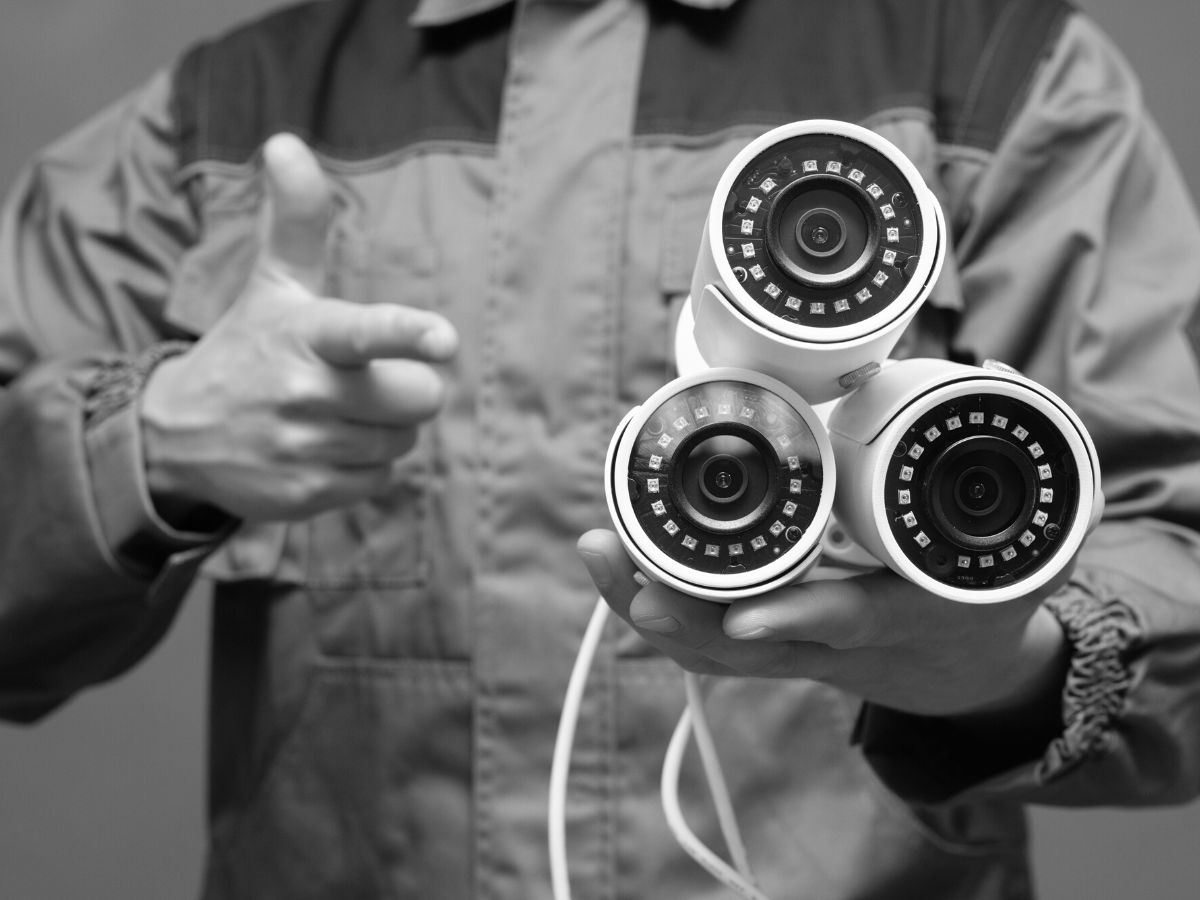Understanding CCTV
These days, security is important for businesses of all sizes. Whether you run a small retail shop or a big manufacturing facility, keeping your assets and employees safe is crucial.
And you know what? A reliable CCTV system is one of the best tools to achieve just that.

However, with so many options available, understanding which CCTV system is right for your business can be overwhelming.
That’s why, at PGC Security, we’ve put together this guide to walk you through the necessary steps for understanding CCTV.
Step 1: Assess Your Needs and Budget
Before going into the technical specifications, it’s important to start with understanding your specific security requirements.
Ask yourself the following questions:
- What areas need monitoring? Identify critical areas like entrances, exits, cash registers, and storage facilities.
- What are your security concerns? Are you primarily concerned about theft, vandalism, or employee activity monitoring?
- What is your budget? Determine the maximum amount you’re willing to invest in a CCTV system.
Step 2: Understanding Camera Types
When it comes to CCTV, there are two main types of cameras out there: analog and IP.
- IP cameras: These CCTV cameras transmit data over a network, giving you higher image resolution, more flexibility, and remote access options. At PGC, we always recommend IP cameras.
- Analog cameras: These are the old-school type, sending video signals through coaxial cables to a central recording device (DVR). We don’t recommend Analog as it’s a step backwards with technology. If you have an analog system in place and are looking to update your CCTV system we will always suggest changing to IP cameras as the benefits far outweigh keeping an analog camera.
It’s also important to understand the quality of your IP cameras. While you can get cheap DIY cameras from hardware stores there is a huge difference in the quality between these and the good quality commercial grade systems that we offer at PGC Security.
When it comes to CCTV equipment you really do get what you pay for.
Step 3: Select the Right Camera Features
Next, you need to consider the following features:
- Resolution: Higher resolution (megapixels) results in clearer images and allows for zooming in on details.
- Night vision: Essential for monitoring areas in low-light conditions.
- Weatherproof: Necessary for outdoor cameras to withstand harsh weather conditions.
- Vandal-resistant: Ideal for protecting cameras from damage in high-risk areas.
- Motion detection: Triggers recording upon detecting movement, reducing storage space and false alarms.
- Pan-Tilt-Zoom (PTZ): Allows remote control of camera movement and magnification.
- Active deterrent functions are the new thing that can sound an alarm and strobe when there is someone near the area. It’s important to note that only some cameras have this function, so it is an option that PGC Security offers when quoting.
Step 4: Recording Solutions
You will need to consider:
- how much storage you will require and
- how many days you want to have a back up of recordings before the system overwrites itself.
Step 5: Consider Installation & Maintenance
Getting your cameras professionally installed guarantees the best placement and system configuration.
Plus, don’t forget to think about ongoing maintenance options to stay one step ahead with your security management.
Step 6: Choose a Reliable Security Provider
Selecting a reputable and experienced security provider is crucial for system design, installation, maintenance, and technical support.
In Victoria, the Private Security Act 2004 oversees security installers and mandates training for specialist tasks like setting up CCTV and access control systems. PGC Security is licensed for Private Security Business in Victoria.
Security Installer Licences in New South Wales are granted by the Security Licensing & Enforcement Directorate (SLED). These Licences come in various levels, and PGC Security proudly holds a Master Licence.
Additional Considerations
- Data security: Make sure your chosen system has strong data encryption and security features to safeguard sensitive footage.
- Scalability: Think about future needs and pick a system that can grow as your business does.
- Integration: Check compatibility with other security systems, like access control and alarm systems, for a complete security solution.
By following these steps and getting advice from a reliable security provider like PGC Security, you will have the best CCTV system for your business.
Remember, investing in a CCTV system isn’t just an expense, but a smart investment to protect your business and people.
At PGC Security, we’ve got you covered.
Find out more about our CCTV services here.
Or give us a Call today to learn more about how we can help keep your business safe.
or



